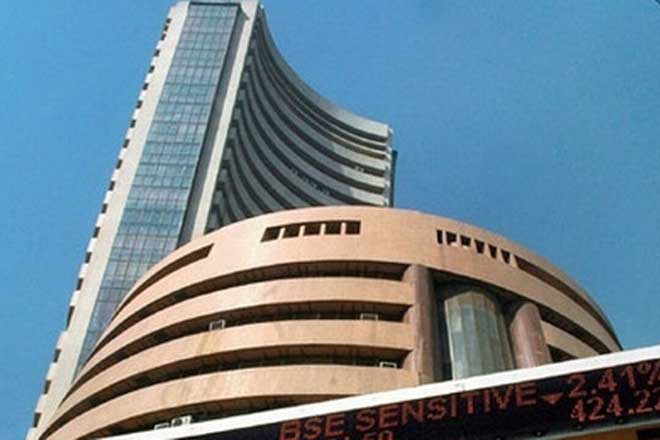The benchmark Sensex shed 244 points on Monday, the first session of 2018, after a late sell-off in auto, banking, and IT shares. The Sensex ended down 0.72% at 33,812.75, while the Nifty fell by 0.90% to end the session at 10,435.55. This is the worst beginning session for the Indian stock markets in more than 17 years. Market participants said thin volumes and profit booking amidst concerns over valuations, rising crude oil prices and expectations that global markets might open in the red after the holidays contributed to the fall. Brent crude ended the Friday’s s session at $66.87, 50% higher than its June 2017 lows. “Markets are overvalued and people are wondering if the earnings growth, which has been 6-7% for the Nifty and Sensex for the last nine months, will improve significantly in the coming quarters. Last year, Nifty has already given 27% returns. How would you justify this kind of madness? That’s the reason people got fearful,” said a market participant requesting not to be named.
Other market players pointed to the thin volumes and absence of several institutional players as a possible reason for the larger than normal volatility and decline. The fall was led by auto, banking, finance, IT and energy stocks. Foreign portfolio investors remained net buyers to the tune of `325.91 crore, while domestic institutions sold shares worth Rs 1,300 crore, provisional data showed. Tata Consultancy Services, Hindustan Unilever, IndusInd Bank and HDFC were the worst performing stocks in the Sensex and fell by 1.69%, 1.52%, 1.45%, and 1.35%, respectively.
HDFC, HDFC Bank, Reliance Industries and, TCS contributed to more than half of the index fall. While HDFC, HDFC Bank, and Reliance Industries contributed more than 30 points, TCS and ICICI bank contributed over 22 points each. The 30-share index had closed at an all-time high of 34,056.83 in the last session of 2017 on Friday. Auto stocks such as Tata Motors, Bajaj Auto, M&M, Maruti Suzuki and Hero MotoCorp too came under pressure and lost anywhere between 0.46% and 1.35% after December sales data failed to offer any indication of a sharp upturn.


